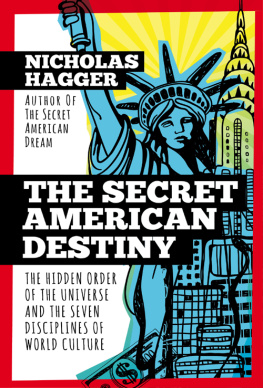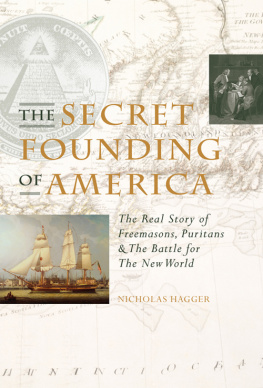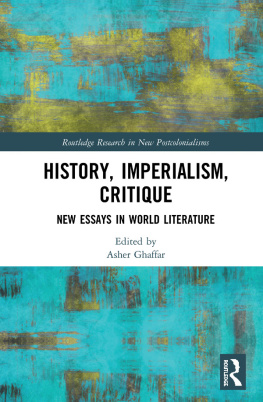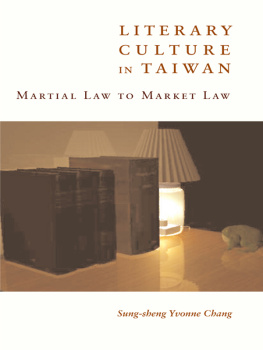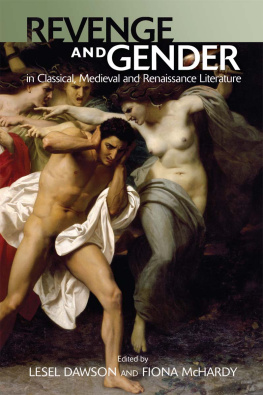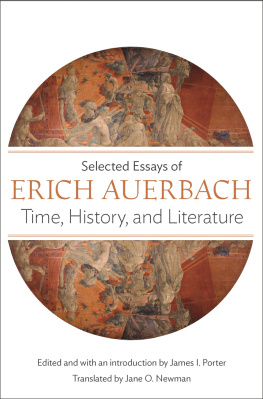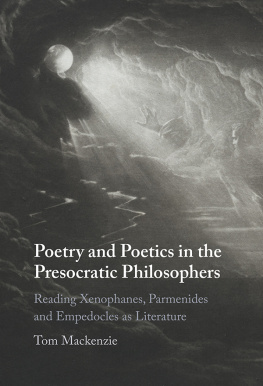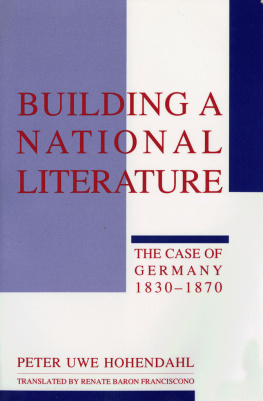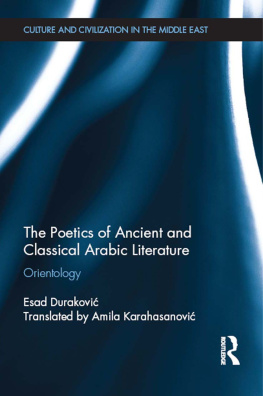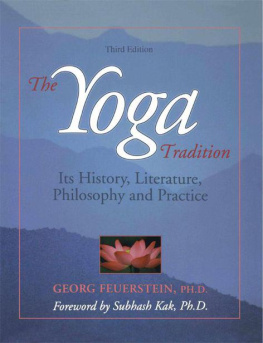Acknowledgments
I acknowledge the memory of T.S. Eliot, whose thinking in his essays (such as Tradition and the Individual Talent) this work carries forward; and of the (to my young me) elderly Japanese poet Junzaburo Nishiwaki who, when I asked him for a distillation of the wisdom of the East in a sak rice-wine bar in Tokyo in 1965, wrote out for me on a business reply card to Encounter which happened to be before us, +A + A = 0, great nothing (see p.346) and supplied me with the dialectical method I have used in all my historical, philosophical and literary Universalist work, in which metaphysical and secular contraries are reconciled in a synthesis.
Over the years I have benefited from many discussions with writers and poets now dead: E.W.F. Tomlin, Edmund Blunden, Frank Tuohy, Anthony Powell, Angus Wilson, Ezra Pound, John Heath-Stubbs, Kathleen Raine, David Gascoyne, and others, some of whose comments inform the text. I have benefited from discussions with Colin Wilson, whose Outsider was a quester, from 1961 to the mid-1990s. I acknowledge discussions spanning more than 50 years with the leading critic of our time, Christopher Ricks, who in spite of his Neoclassical principles was good enough to agree with my view of the reconciling power of Baroque poetry at an early stage and provided many stimulating thoughts. I appreciated a correspondence with Ted Hughes, who wrote to me in 1994, I read your books with a sort of automatic assent. He was extremely interested in literary Universalism and would have been very interested in this work.
I am grateful to Gillon Aitken for spurring me to distinguish two very different sensibilities, which focused my attention on the need for this book and precipitated its shape in my mind. Once again I acknowledge John Hunt, who immediately recognised the importance of stating the fundamental theme of world literature and of setting out the tradition of literary Universalism. And I am again grateful to my PA Ingrid who kept up with the brisk pace I set that, despite the enormous scope of 4,600 years of world literature, covered the ground from first research to completion in just over eight months (from 22 July 2010 to 31 March 2011).
Come said the Muse,
Sing me a song no poet yet has chanted,
Sing me the universal.
Walt Whitman, Song of the Universal, in Leaves of Grass
I must Create a System, or be enslavd by another Mans.
Blake, Jerusalem, f.10, l.20
You must teach the taste by which you wish to be relished.
Junzaburo Nishiwaki in conversation with
Nicholas Hagger on 21 December 1963
*
In poets as true genius is but rare,
True taste as seldom is the critics share,
Both must alike from Heaven derive their Light,
These born to judge, as well as those to write.
Let such teach others who themselves excel,
And censure freely who have written well.
Authors are partial to their wit,* tis true,
But are not critics to their judgment** too?...
A perfect judge will read each work of wit,
With the same spirit that its author writ:
Survey the WHOLE, nor seek slight faults to find
Where Nature moves, and rapture warms the mind.
Pope, An Essay on Criticism, lines 1118, 2336
*Wit, the unexpected, quick and humorous combining or contrasting of ideas or expressions (Concise Oxford Dictionary); a combination of dissimilar images, or discovery of occult resemblences in things apparently unlike...The most heterogeneous ideas are yoked by violence together (Dr Johnson, Lives of the English Poets).
**Judgment, the critical faculty; discernment; an opinion or estimate; criticism (Concise Oxford Dictionary).
Pay no attention to the criticism of men who have never themselves written a notable work.
Ezra Pound, A Retrospect
APPENDIX
Close Readings
The Emergence of a Secular Tradition Alongside the
Quest for Reality in English Literature
The following studies were written by Nicholas Hagger at different times between 1974 and 1985, and reflect his thinking during that period. The last two studies, on Swift and on traditional poetic method (a later piece of work written on 3-4 June 1999), question the Age of Reason and modern secular poetry. He has not amended them in the light of the current work, apart from minor tidying up. They illustrate the differences between the Neoclassical and Romantic approaches and sensibilities in English Literature by close readings of key aspects of their works: contraries that Universalism reconciles.
1
Studies of the Approaches and Sensibilities of Classical
and Romantic Poets in English Literature
Chaucers Ironic Praise and Deflation,
Ridiculing Follies and Vices of the Incumbents
within the Church System
Chaucers method is a method of praise. In The Prologue he applies the same method to each of the 29 pilgrims he describes in detail. He introduces them, says nice things about them, gives us their attitudes, justifies them, and carries us along on a tide of panegyric. Then was that the bottom of our boat scraping on rocks? we suddenly realize he has carried us too far, and that we are assenting to his praise of a trait that is not praiseworthy. And so deftly is it done that it is with a slight shock we realize that Chaucer does not believe his own praise, that he is, in fact, being ironical. And in that little shock lies much of his humour.
We can see this movement at work in his portrait of the Friar. He was a merry man, Chaucer tells us, he was licensed to beg, he was a man of great importance. In all the four orders no one spoke with such light familiarity. He had married younger wommen at his owene cost. Now we realize that he was a womaniser, but Chaucer goes on praising him. Ful swetely herde he confessioun. And: He was an esy man to yeve penaunce.
Hey, we think, these are not good qualities to be admired, surely. He takes money, and is it not justified? For many a man so hard is of his herte/He may nat wepe, althogh him sore smerte,/Therfore instede of wepinge and preyeres/Men moote yeve silver to the poure frres. A preposterous justification. But this is the man, speaking in his own language, justifying himself, and Chaucer still does not give his opinion, at least not overtly. The Friar knew every innkeeper and barmaid
Bet than a lazar or a beggestere.
For unto swich a worthy man as he
Acorded nat, as by his facultee,
To have with sike lazars aqueintaunce.
No one could believe such exaggerated justifications, Chaucer cant believe them. And of course he doesnt. This master of irony has pinned this rogue fixed and sprawling on a wall.
The same applies to the Prioress, with her affected French and manners, her excessive daintiness. It applies to the Monk and his justification for his excessive outdoor pursuits:
What sholde he studye, and make himselven wood,
Upon a book in cloistre alwey to poure,
Or swinken with his handes, and laboure,
As Austin bit? How shal the world be served?
It applies, less blatantly, to all the rogues Chaucer shows us, a gallery of characters who are on the make: the Merchant, The Shipman and the Doctor to name but three. Indeed, the problem in The Prologue becomes deciding when Chaucer is not being ironic, when he is being straight.
The Knight, is he such a worthy man after all, seeing how often Chaucer uses the word worthy ironically elsewhere? (He uses it twice each of the Merchant and of the Friar.) Is Chaucer perhaps suggesting that he could not possibly have been to all those battles, that he was a bit of a romancer? Or is there another reason for the gypoun being al bismotered with his habergeoun could he be idle, for instance, and just not up to getting it cleaned the evening before all 29 characters put up at the Southwark Tabard? And his son the Squire, is it really permissible that He slepte namoore than dooth a nightingale? Or is Chaucer again here praising the unpraiseable?


